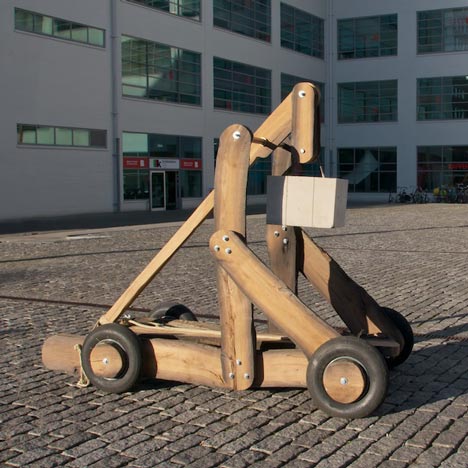
In Situ by Julien Carretero
French designer Julien Carretero has used timber excavated from Eindhoven's medieval city walls to make a series of objects that could be used in an insurgency, including a catapult and a ladder.
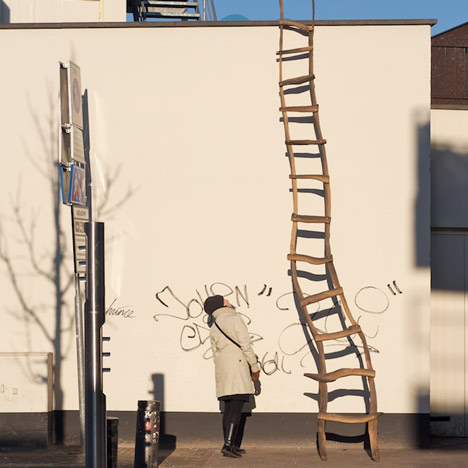
Called In Situ, the series also includes a pulley and matchsticks.
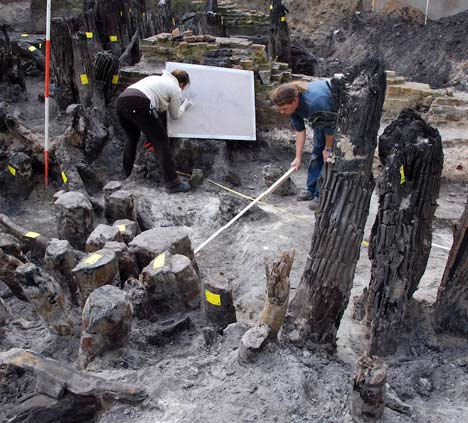
Above photograph is by Laurens Mulkens
Carretero displayed the pieces across the city of Eindhoven.
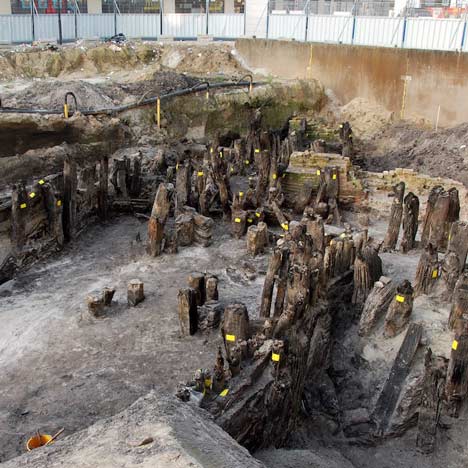
Above photograph is by Laurens Mulkens
They're now on show at Gallery S. Bensimon in Paris as part of an exhibition called Matter of Time, organised by collective Dutch Invertuals.

More work by Julien Carretero »
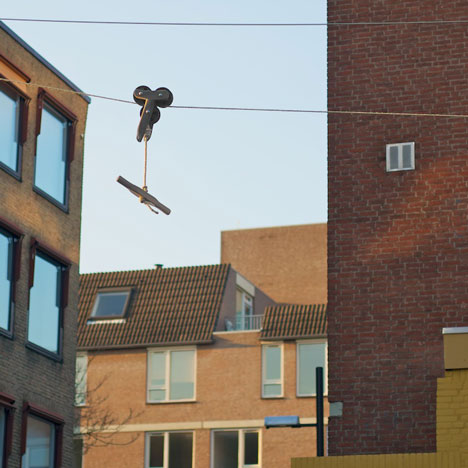
More information is provided by the designer:
In situ
In situ is a series of objects made of recently excavated wood from Eindhoven's Medieval city wall.
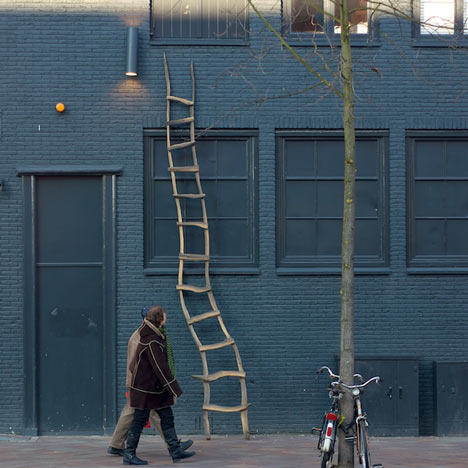
After more than 600 years underground, the oak wood that was once used to protect the city is brought back to the public space in the form of instruments for revolution.
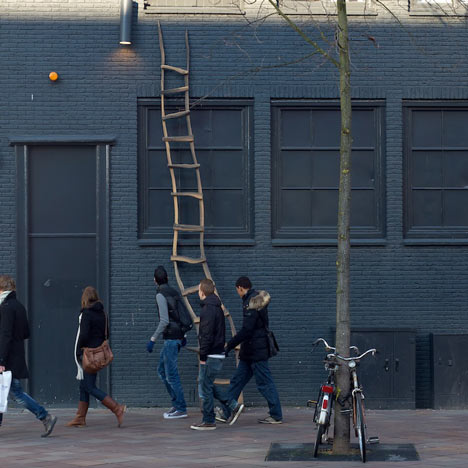
Their intervention aims to question and challenge the routine taking place in cityscapes. Through the creation of situations of wonder, In situ wants to break public passivity and encourage passers-by to actively participate to the spectacle of daily life.
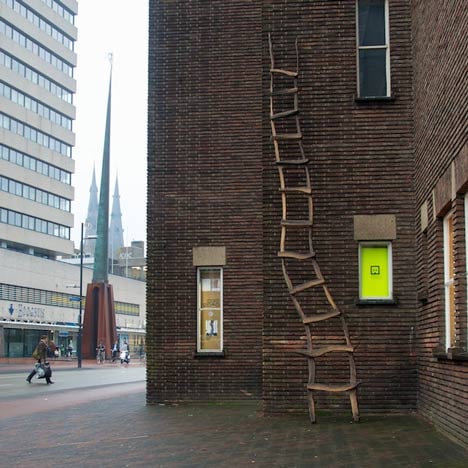
The In situ props, which all share the symbolic value of both escape and uprising, interact with wanderers on various levels: may these be physical, visual, narrative or emotional.
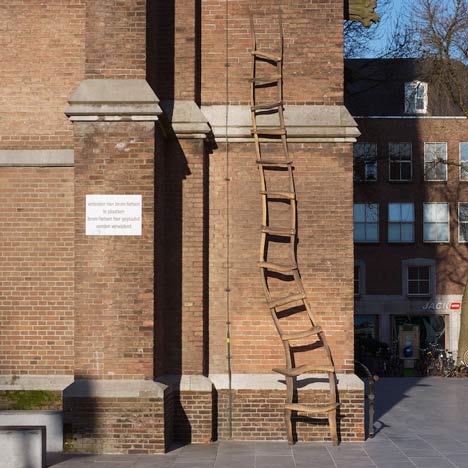
In situ wants to unleash feelings and people. In situ is a trigger.
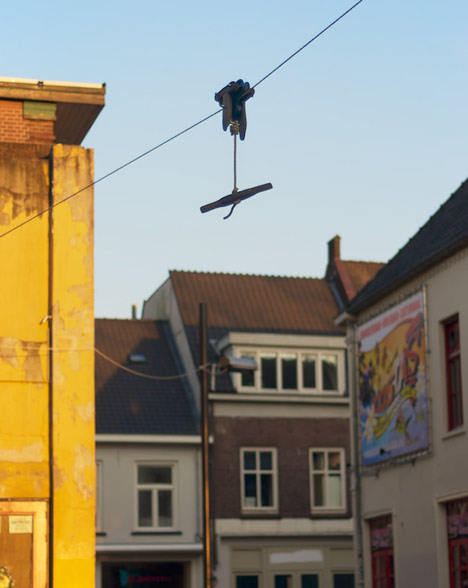
The In situ project is part of the 'Matter of Time' exhibition organized by design collective Dutch Invertuals, under the curation of Wendy Plomp. The 'Matter of Time' exhibition is currently on display at Gallery S. Bensimon (Paris).
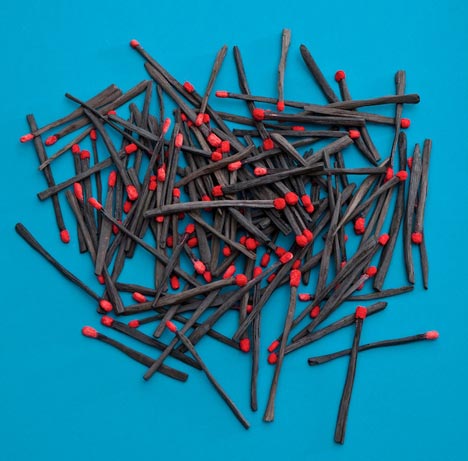
This exhibition was made possible thanks to the support of the Archeological Centre of Eindhoven and the City of Eindhoven.